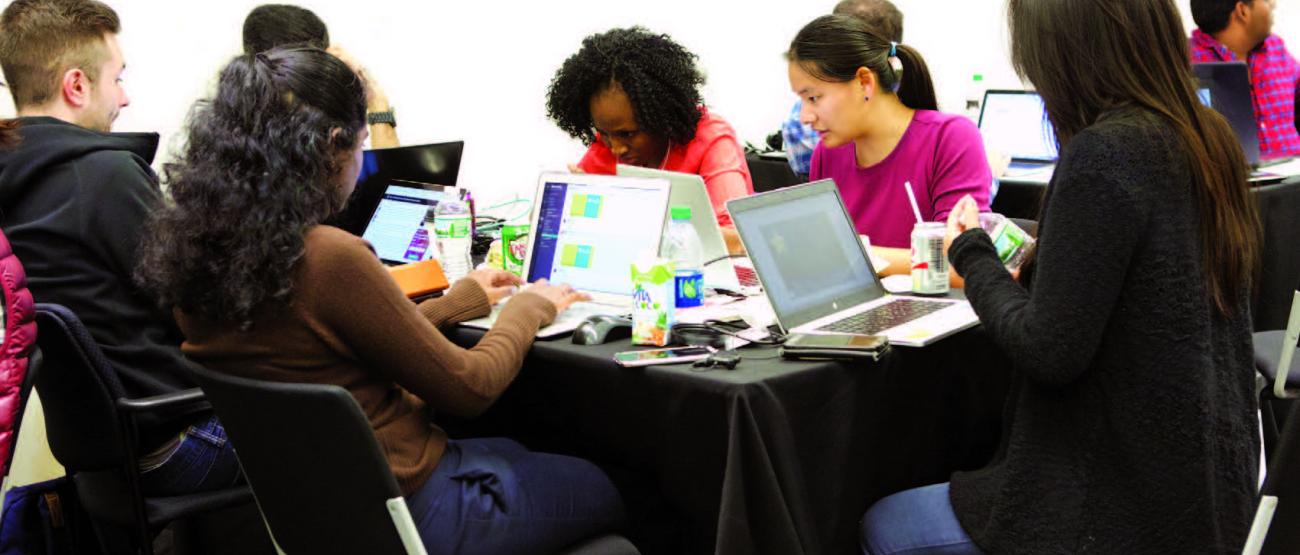Hacking Health Care and Helping Cancer Patients
Personalized Medicine
Hacking Health Care and Helping Cancer Patients

Four years ago, Rensselaer and the Icahn School of Medicine at Mount Sinai entered into a relationship to promote personalized medicine and medical care through collaborations in education, research, and development of new diagnostic tools and treatments. Several innovative projects on Alzheimer’s disease, cancer, diabetes, and osteoporosis have already emerged from this partnership.
As part of the relationship, the Icahn School recently hosted a health hackathon, supported in part by the Center for Biotechnology and Interdisciplinary Studies at Rensselaer, to explore transformative ideas in several areas of health-care delivery. The event included Rensselaer students, as well as students from Mount Sinai Medical Center, Columbia University, and CUNY, and hospital staff. Rensselaer students were part of all three finalist teams.
Computer science doctoral candidate Angela Su was one of a dozen undergraduate and graduate students who entered the Mount Sinai Health Hackathon. Her team, which also included biomedical engineering student Alagu Chidambaram, was one of three finalists. Finalists were awarded $2,500, and participated in an innovation “Shark Tank-type” showcase in February 2018, during which the finalists presented a five-minute pitch to a panel of entrepreneurs.
Su and her six-member team designed “On track,” a web-based school and socializing tool for pediatric cancer patients. The tool makes it possible for parents and teachers to keep kids connected with their classroom and peers as they undergo treatment.
“My team ended up being super diverse, everyone came from different backgrounds—biomedical, education, computer science,” Su said. “Everyone had a different role, and we worked really well together. We did a lot of background research to see what kinds of problems pediatric students might be going through, what resources are available, and how our potential solution would be helpful. During the event, they had mentors circulating among the teams and they gave us great advice on how to shape our idea.”
Two Rensselaer students were on each of the two remaining finalist teams. Lydia Krauss, a biomedical engineering undergraduate, worked on “Helping Stand,” a portable device to help fatigued patients get out of a car. And Michael Bramson, a graduate student in biomedical engineering, worked on “StreamLine,” an AI-based tool for streamlining the clinical trial protocol development process.